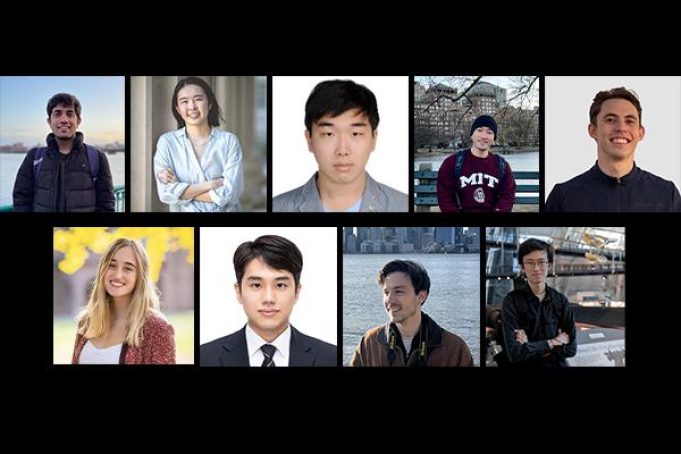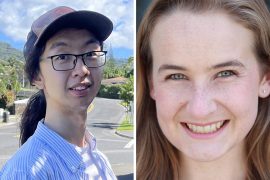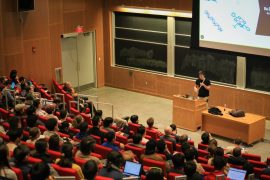Nine MIT PhD students named Amazon AI Fellows

The fellowship aims to support research in core areas of AI that have potential for real-world impact.
Nine MIT PhD students have been selected for Amazon AI fellowships to help pursue their research in core areas of AI, such as machine learning, computer vision, and natural language processing.
Awarded by the Science Hub, the fellowship will provide students with funding to conduct independent research projects at MIT. Fellows with also be paired with an Amazon scientist, who will serve as a mentor and research liaison.
Established in October 2021 as a collaboration between MIT and Amazon, the Science Hub supports research, education, and outreach efforts in areas of mutual interest. Administered at MIT by the Schwarzman College of Computing, the hub aims to expand participation in AI, robotics, and other fields, and ensure the benefits of this research are shared broadly.
From intelligent algorithms to assistive robots, the inaugural recipients of the fellowship are conducting research in integral areas of AI with the potential for real-world impact.
Amazon AI Fellows
Shivam Duggal is a PhD student in the Department of Electrical Engineering and Computer Science (EECS). He holds an MS in robotics from Carnegie Mellon University’s Robotics Institute. Duggal’s research interests lie at the intersection of computer vision, computer graphics, and robotics. His work primarily focuses on designing intelligent algorithms.
Jenny Huang is a PhD student in EECS. Her research interests include data-centric machine learning, uncertainty quantification, and the development of efficient AI. Huang earned a BS in statistical and computer science from Duke University.
David Jin is a PhD student in Computational Science and Engineering. Jin has a strong interest in scalable computation and how it can be pushed by algorithm design and modern hardware. With applications in robotics and energy, his research focuses on GPU-accelerated methods for large-scale optimization in AI-driven decision-making systems.
Dong Won Lee is a PhD student at the MIT Media Lab in the Personal Robots Group. Currently, he works on the foundations of multimodal social agents with a focus on developing machine learning methods and evaluation for social intelligence.
Artem Lukoianov is a PhD student in EECS and is affiliated with the Computer Science and Artificial Intelligence Laboratory in the Geometric Data Processing Group. His research work includes problem solving in areas of computer vision, computer graphics, neural signal representations, and equivariant learning.
Marina Mancoridis is a PhD student in EECS. Mancoridis’ work lies at the intersection of artificial intelligence with behavioral science and decision-making. Previously, she worked in the Computational Cognitive Science Lab at Princeton University.
Chanwoo Park is a PhD student in EECS and is affiliated with the Laboratory for Information and Decision Systems (LIDS). Park’s current research interest focuses on multi-agent learning that combines game theory, sequential decision-making theory, and understandings of the recent advances in vision-language models.
Sasha Voitovych is a PhD student in the Institute for Data, Systems, and Society and is affiliated with LIDS. His research interests lie in the theory of machine learning. Voitovychter earned a BS in computer science and mathematics from the University of Toronto.
Songyuan Zhang is a PhD student in the Department of Aeronautics and Astronautics. He is a member of the Reliable Autonomous Systems Lab. Zhang’s research interests focus on safe multi-agent systems, reinforcement learning, control theories, and robotics. Currently, his goal is to develop real intelligent assistive robots.


